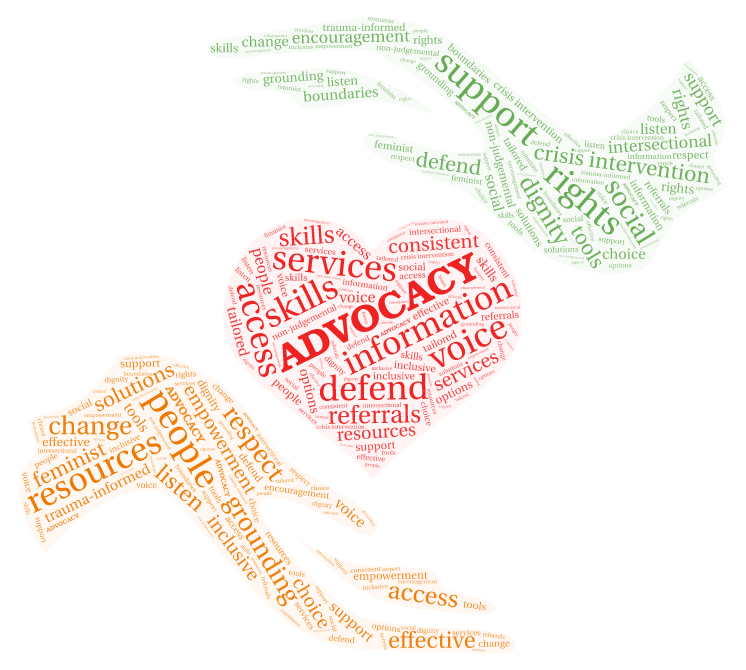Tools for Healing: What is advocacy?
“All advocacy is, at its core, an exercise in empathy.”
The Rape Recovery Center’s services are at no cost to survivors as we work with 14 and older primary and secondary survivors. We work hard to ensure we provide language access and currently have staff in every program who speak Spanish and have translation available. Our advocacy comes in the forms of direct services to survivors of sexual violence seeking a forensic exam or advocacy-only response in Salt Lake County, Tooele County, and the Family Justice Center, in-house services for crisis support, and follow-up. The in-house Advocates aim to provide crisis intervention, an immediate, supportive response, short-term case management, and referral services.
Our favorite tool to share with survivors, their family members, and friends is that all can advocate for survivors. Although hospital response team advocates and in-office advocates are trained professionals, they are also passionate about supporting survivors. The most critical thing we do is reinforce that we are merely partners in this healing process. We help survivors uncover their innate strengths and develop and practice new coping methods when viewing themselves and their experiences. We assist survivors as they implement coping strategies amidst a panic attack, flashback, anxiety, depression, etc. We hold silence as survivors come forward for the first time and tell their stories. We are experts at celebrating healing milestones and holding silence and grief together. We do this work with great honor and respect as we understand that healing work hurts, but not healing hurts more.
Our favorite truth to share with survivors is that they are the experts in their lives. Our advocates can share and teach practical, evidence-based ways to combat post-traumatic symptoms while honoring lived experiences. We emphasize choice and empower self-determination at every step of the healing journey. We teach our clients how to advocate for themselves beyond 4-6 hours as they undergo a sexual assault evidence collection exam, work with one of our Victim Advocates in-office for 4-6 weeks, or as needed to receive resource and referral advocacy. Our ultimate goal is to enable self-advocacy, which includes asking for help and balancing self-care and preservation.
Our advocates believe wholeheartedly that healing transcends. We believe that when one individual embarks on the healing journey, it makes room for others around them to heal, too. We provide services to family members and friends of survivors because we understand the impact of sexual violence often includes those closest to survivors.
Our highest intention in doing this work is to inspire hope. We aim to share the good news:
Healing includes us all
Everything that is needed to recover from trauma has existed within us long before the trauma.
We are partners in helping to uncover inner strength, and it is an honor and privilege to witness healing.
You can reach us at our front-line desk Monday - Friday, 9 a.m. to 5 p.m. at 801-467-7282. We have options for virtual or in-person appointments, so please call our front-line desk to schedule an appointment today. The Utah 24-Hour Sexual Assault Help-Line is available at (801) 736-4356 and Linea de Apoyo de Violencia Sexual las 24-Horas de Utah: (801) 924-0860

